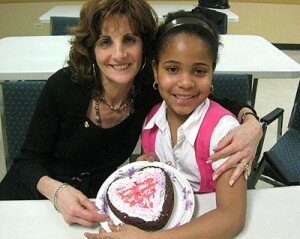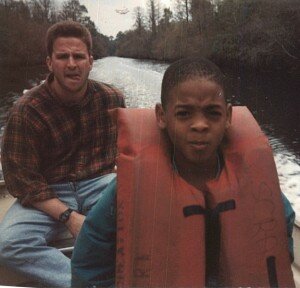January is the start of so many good things: a new year, a renewed surge of volunteers, and National Mentoring Month. It is important to celebrate our mentors: those who change our lives by being a good listener, setting boundaries, providing support and criticism, and celebrating milestones with us. As we wrap up the month, lets look back at this year’s presidential proclamation for inspiration on ways to carry the spirit of National Mentoring Month throughout the year!
Presidential Proclamation–Mentoring Month
Across our Nation, mentors steer our youth through challenging times and support their journey into adulthood. During National Mentoring Month, we honor these important individuals who unlock the potential and nurture the talent of our country, and we encourage more Americans to reach out and mentor young people in their community.
The dedication of mentors has helped countless young men and women succeed when they might have otherwise fallen short of their full potential. Mentors can provide a steady presence and share their valuable knowledge and experiences. Even brief amounts of quality time set aside by these compassionate adults can have a lasting impact on the development of a child. Mentors can also support the lessons of parents and teachers by encouraging students to complete their schoolwork and by instilling enduring values of commitment and persistence. From coaches to community leaders, tutors to trusted friends, mentors are working with today’s youth to develop tomorrow’s leaders.
We know the difference that a responsible, caring adult can make in a child’s life. Effective mentoring programs can result in better school attendance, positive student attitudes, and a reduced likelihood of initiating drug and alcohol use. Across the Federal Government, we have provided resources to expand mentoring opportunities for America’s young people. We are increasing mentoring efforts in Native American and rural communities and are working to ensure our investments are coordinated, effective, and focused on those most in need. To help build healthy families and communities and provide our youth with strong role models, I launched the President’s Fatherhood and Mentoring Initiative. First Lady Michelle Obama and I have also established mentoring programs within the White House, pairing staff with young men and women in the Washington, D.C., area. For information and resources about mentoring opportunities, I encourage all Americans to visit: www.Serve.gov/Mentor.
Many Americans have realized their promise because a mentor encouraged them to reach for new heights and guided them along the path to achievement. The contributions of these engaged adults extend beyond the lives they touch and have a lasting impact that strengthens our country and our future.
NOW, THEREFORE, I, BARACK OBAMA, President of the United States of America, by virtue of the authority vested in me by the Constitution and the laws of the United States, do hereby proclaim January 2011 as National Mentoring Month. I call upon all public officials, business and community leaders, educators, and Americans across the country to observe this month with appropriate ceremonies, activities, and programs.
 IN WITNESS WHEREOF, I have hereunto set my hand this twenty-first day of December, in the year of our Lord two thousand ten, and of the Independence of the United States of America the two hundred and thirty-fifth.
IN WITNESS WHEREOF, I have hereunto set my hand this twenty-first day of December, in the year of our Lord two thousand ten, and of the Independence of the United States of America the two hundred and thirty-fifth.
BARACK OBAMA
Yesterday was National Mentoring Day. What did you do to thank your mentor? How will you celebrate the support system mentoring provides throughout the year?
Related Articles
Ten Ways to Celebrate National Mentoring Month
National Thank Your Mentor Day




 PJ is a very memorable mentor. He is the reason I landed in New Orleans. He saw something inside of me I could not and kept on believing in me. PJ has consistently challenged me in ways that have frustrated me and other ways that have helped create more joy in my life. While we aren’t as in frequent communication as we once were, he is always there when I need to pick up the phone and ask advice.
PJ is a very memorable mentor. He is the reason I landed in New Orleans. He saw something inside of me I could not and kept on believing in me. PJ has consistently challenged me in ways that have frustrated me and other ways that have helped create more joy in my life. While we aren’t as in frequent communication as we once were, he is always there when I need to pick up the phone and ask advice. Meridith Rentz, Chief Operating Officer
Meridith Rentz, Chief Operating Officer This week NBC is hosting
This week NBC is hosting 




